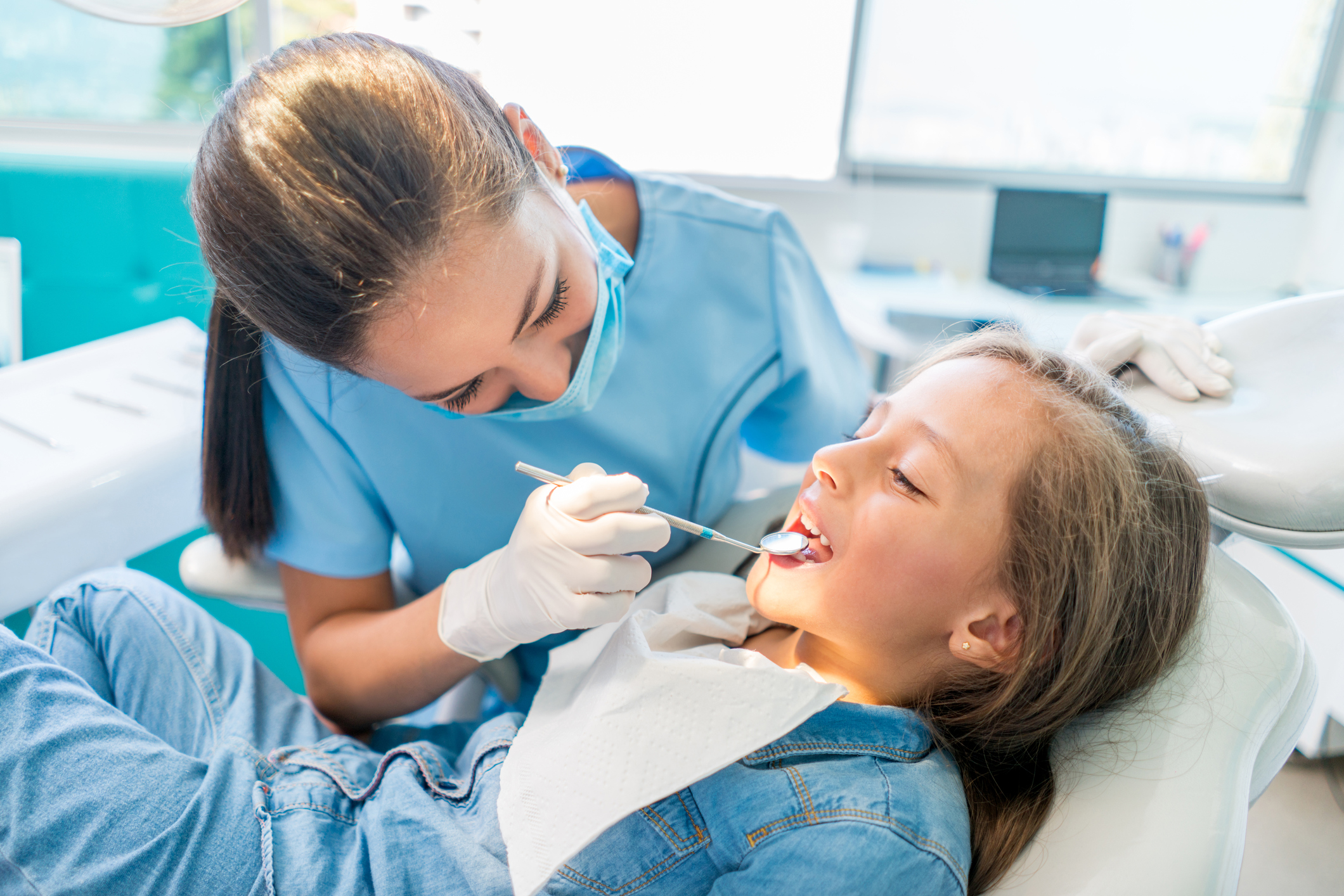7 Signs It's Time to Visit Family Dentist

Ahh, dentists.
They are the best people to help you attain that highly-sought-out Hollywood smile through professional teeth whitening. Yet they are also the nightmares of many kids (Someone please find out what and who in the world founded and spread this irrational fear. The family dentists in Richmond Hill are dying to know.).
They are one of the only beings, who take the time to appreciate efforts put into keeping those pearly whites clean.
Yet dentists also happen to be one of the only earthlings to scold someone too lazy to brush and floss.
Jokes aside, they are also the humans that are absolutely not to be neglected if one is looking to keep their oral hygiene in healthy condition.
Sadly, plenty of individuals across the globe are not persuaded and ignore this fact.
They fail to take note of the warning signs and continue to postpone their dental appointments. Next thing they know, they are suffering in the late stages of three cavities, a severe gum infection, and oral cancer.
Three major problems that could have been easily solved and reversed if they simply attended their annually scheduled dentist meeting and discovered the problems during their initial unfolding.
Now you may still be unconvinced of all of this and that’s ok. Perhaps you even skipped out on a couple of appointments and everything still seems to be in order.
Nonetheless, as good Samaritans and Richmond Hill family dentists, we feel compelled to inform you of some helpful knowledge that will help you identify when it actually IS crucial to make the visit.
All that said, this article presents to you;
Aching Teeth/Gums
A constant toothache should be taken as a good sign that it’s about time you mACHE an appointment with the family dentists -- preferably one that takes place as soon as possible.
Hurting in the gums can be a symptom of:

• Sensitive teeth. Others terms for this are dentin hypersensitivity and root sensitivity. If you use tooth whitening products containing harsh agents like peroxide that penetrate the enamel, increased sensitivity in teeth is usually inevitable.
Other causes for the weakening of the tooth enamel includes the intake of sugary and acidic foods/drinks and/or gum recession. Gum recession is quite common as you become an elder, but be sure to warn your orthodontist because it can also be a sign of gum disease. Depending on the cause, your dentist will recommend varying treatments to solve the issue at hand.
• Tooth Decay. Do you often indulge in sweet and acidic cravings? Get lazy when it comes to flossing and brushing? Don’t be surprised if the oh-so-common tooth decay enters your life. The deteriorating of the inner tooth mineral is the outcome obtained when plaque bacteria leaks enamel-penetrative acids that ultimately (and ironically) eat away at peoples chompers.
• Bruxism. This is usually the result of excess stress, crooked teeth, and/or bad jaw alignment. If your teeth are in pain yet no signs of decaying or disease is present, the grinding of teeth may very well be the issue. Chronic grinding will wear away tooth enamel, increase the risk of infection and decay, and will damage the crowns of your pearly whites. Bruxism is quite common among the general populace, so if this is suspected to be the case take the time to see a dental professional and get a mouth guard.
Explore further
Damaged or Chipped Teeth
Got into a brawl? Children bang their heads against something? Notice something wrong with the visible parts of a close relative’s teeth?
Well, it may be time to check up on the damaged goods using the help of some certified family dentists. If delayed, the tooth could become further damaged and/or infected. This is not something you want to test out. Depending on the severity of the issue, your dentist will make the suggestion of fillings, bondings, dental implants , caps or other…
Bleeding Gums
Do your gums bleed as you brush or floss? If so, this may be an early sign of Gingivitis , the first stage of gum disease.
Bleeding gums are caused by the build-up of remaining plaque.
The germs and bacteria belonging in plaque slowly destroy and attack the healthy tissue around the teeth; consequently leading to the bleeding in the mouth. If left alone, plaque will eventually turn into hardened tartar, progressing into a more grave stage called “Periodontitis”.
Please also note that gum disease has been linked to a wide variety of more serious conditions stemming beyond the mouth. This list includes but is not limited to diabetes, heart disease, poor sexual health, stroke, cancer, and much more. If you desire a happy and healthy body, every part of your body should be taken care of. The intricacies and relations between it all run deep.
All this being said, do not fear! If detected early, this problem can easily be reversed with the proper treatment.
So next time bleeding gums are noticed, please take your earliest chance and scramble to that dentist seat.
Bad Breath
It’s not expected for anyone to have minty breath right after eating certain foods (especially aliments like garlic or onions), but your breath shouldn’t be rancid for no reason.
Bad breath, otherwise known as Halitosis, can be produced for a variety of reasons- some worse than others. Persistent foul breath is a symptom of:
- Poor Oral Hygiene: There is a reason why having a moment to brush and floss properly included in the daily washroom routine is stressed. Inadequate cleaning will not get rid of all the remnants of food particles in the mouth. Over time, bacterial breeding will begin to take place between the teeth, the tongue, and the gums. The result? Bad breath and some other oral complications (Can’t say it’s unexpected).
- Tobacco Consumption: This should come as no surprise. Aside from being terrible for the body’s immune system, tobacco also stains and increases consumers risk of oral infection and disease.
- Gum Disease: Bacteria in the mouth. Bacteria releases foul odor. Need we say more?
- Xerostomia (a.k.a Dry Mouth): As disgusting as people think saliva is, it is necessary for good oral health. Saliva is what keeps the plaque acids neutralized and the dead cells at bay. In this case, a foul speaking odour is the direct byproduct of the decomposition of these dead cells not yet washed away due to the lacking presence of drool.
Mouth Sores
Having occasional sores is a rather normal affair. Although they can make eating and drinking pretty uncomfortable, the harmless ones do simply come and go. Notice that the adjective “harmless” is included in that sentence. Not all mouth sores are what you would call, for lack of a better term, “safe”.
If a red bump or irritating patch of skin on the inside of the mouth does not seem to heal even after a couple of weeks, please see an oral specialist (a.k.a a dentist) AS SOON AS POSSIBLE.This could very well be a sign of premature oral cancer.Like with any other cancer, an earlier discovery equals a better chance at recovery.
Pigmentation
Have you or anyone you have known ever looked in the mirror, only to see white/brown spots on the surface of your/their teeth? This is what dental experts classify as the initial signs of decay.
As aforementioned in the previous paragraphs, dental decay is when the acid produced by bacteria slowly dissolves the enamel. Any individual with a certain degree of common sense can probably infer, that this is NOT something good to have.
Now while it all may sound scary, it is not the end of the world if these spots are noticed. In fact, one could consider themselves lucky if they realize that there is a matter that needs to be corrected early. Especially if they were not thinking of visiting any family dentists for a long time to come.
Why? Well, the rotting of teeth does not often show any initial symptoms of occurring on the surface. Only specialists would be able to tell if there is an underlying cause of concern during this stage. **Probably good reason that should prompt people into visiting their dental hygienists regularly.**
Loose/Wiggly Teeth
Now we are not talking simply about losing baby teeth. It is natural for young people to lose their teeth and grow in new ones as they progress in age (Usually occurs from 6 to 12 years of age). What we ARE talking about is the loss of those adult chompers. Healthy pearly whites should not get loose, wiggle or fall down a second time. This is a cause of concern and only occurs when the tooth loses support and gradually detaches itself from the bone and gum as a result.
Other symptoms you will probably along with this includes gum recession, bleeding, swolleness etc. This phenomenon usually suggests that there is a hidden disease in the middle of developing. In this case, it is HIGHLY suggested you take a trip to the dentist.

When Should A Childs First Checkup Take Place?
It is recommended for kids to start seeing the dentist as soon as their first tooth grows in or by their first birthday (whichever comes first).
During the first checkup, the dental specialist will take a look at his/her/their oral structure. Soon after, the dentist will talk about the diet and habits needed to maintain proper oral hygiene. In the end, guiding your child as he/she/they grow.
A good and early first visit will get your child feeling more secure and comfortable visiting the dentist in the future. Think of it as setting the stage and getting rid of any potential fears by nipping them in the bud.
Importance Of Regular Check-Ups
We recommend visiting a specialist at least twice on an annual basis (meaning every six months) for some of the following reasons:
- Cancer Detection - When dentists examine your mouth, they truly do EXAMINE your mouth. Besides checking for cavities, finding solutions for cavities , etc. Included in their dental services are oral cancer screening exams. These have the ability to spot any signs of cancer development in the mouth.
** Should be prioritized especially by those with any past family history of oral cancer**
- Good Oral Hygiene - Sometimes tartar and plaque build-up without a client even knowing or seeing it. Having a hygienist look at the main chompers from time to time, will not only reward you with a gorgeous smile but also save the trouble of having to deal with any possible cavities in the making.
- Jaw/Teeth Correction - Teeth and jaw X-rays conducted in dentistry are utilized to detect any abnormalities needing to be addressed. Based on our experience, In the case of problems like teeth crowding, using the images as a reference point, the majority of the time Richmond Hill family dentists will probably recommend surgery or a medical contraption that arranges everything over a long period of time.
*In other instances, when cysts or tumours are found, he or she will notify the patient and get them to see a doctor as soon as possible.*
People also search
Final Thoughts?

Hopefully, this knowledge has helped you or will help you realize any potential threats to your own oral health. Making it clear if it is about time you pay a visit to your dentist again. “But… I don’t know of any family dentistry clinics or any dentists near me.”
Don’t panic. As dentists Richmond Hill citizens entrust, we truly do believe that keeping your pearly whites healthy and clean should be a priority. Therefore, whenever convenient and in the area, feel free to visit our clinic composed only of specialized Richmond Hill dentists.
----------------------------------------------------------------
Moving forward, after reading this article, it may be beneficial for you, the reader, to ask yourself the following questions and act accordingly:
- When was my last appointment with the family dentist?
- Has it been longer than six months since then?
- If so, when is the next date I would be available to schedule a checkup?
